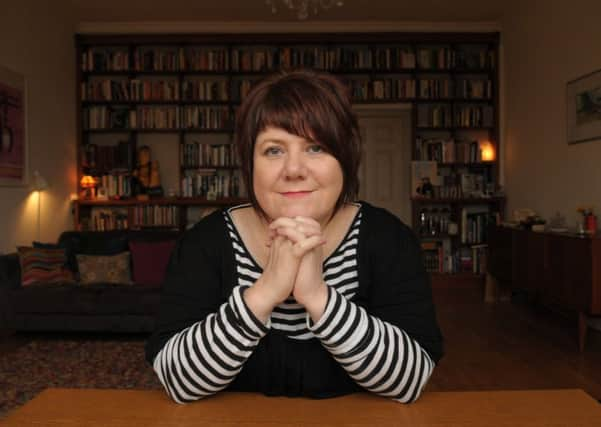Book review: No Dominion, by Louise Welsh


At the outset, three incomers arrive by boat on the island, where a vaguely sustainable society has rooted itself after the outbreak of “The Sweats”, a virus which has more than decimated the population. It is a world of cart-horses and parsnips, with vague memories of mobile phones and cinema. There is a seething competition between Stevie, from the first book and now President of Orkney, and a local strongman called Bjarne. Children left orphaned by the disease are now given foster-parents. Not all of the children are quite content with their situations.
The most intriguing thing about Welsh’s trilogy is how she has combined dystopian fiction with traditional crime – the genre she began with in The Cutting Room. How does one create justice in a world in chaos? Who do you trust? What will you do to get answers? This book very much exacerbates such questions. It is not what the great Brian Aldiss called the “cosy catastrophe”. In some ways Welsh’s novel is in key with Justin Cronin’s final volume of his trilogy: once the horror is gone, how to rebuild? It is also striking that so many recent Scottish novels seem obsessed with societies in meltdown and recovery: Jenni Fagan, Martin McInnes, Michael F Russell, Ever Dundas. All of them, like Welsh in her new novel, have a cautious optimism – even her title, albeit abbreviated, stresses that death shall have no dominion.
Advertisement
Hide AdMagnus is worried that his foster-child Shug is falling in love with Willow, the foster-child of Bjarne, who is implacably opposed to the liaison. Setting out for a square-off, he finds not just Bjarne dead, but his wife, his dogs, and his horse. But then, while the incomers are supposedly still in quarantine, several teenagers and a toddler disappear from the islands. Stevie and Magnus team up to go to the mainland. They will find versions of aristocratic droit de seigneur and ingrained privilege, libertarian groups in a conflict with their rulers, theocratic tyrannies, high-minded and morally-compromised individuals ruling Glasgow as a place where you can have some food, but only if you do a great deal of work; a kind of Stalinist parody. All of this is written engagingly, and with wry asides: it cannot be a coincidence that the Glaswegian leader is called Bream (Salmond, Sturgeon?).
The novel, like most set in dystopias, is a strange reflection of our times. The material about people trafficking is done excellently, and there is a debate about what the age of consent should be in a depopulated population; some of this makes for brilliantly uncomfortable reading. Welsh manages to present both sides of the “debate” with admirable frankness. It is not easy to write a character giving a defence of paedophilia. There is also a sensitive and problematic subplot about non-binary identities. Although we have a strong female lead, much of the book is about how women are always the first to be abused, traded, forced and forbidden. It also gives an askance glance at how constricted young people in rural locations might feel; how capitalism requires first and foremost labour; how resistance is not the same as revolution.
On more than one occasion, given how much of a thriller this is compared with the first two volumes, we get some convenient deus ex machinas. At the point of the precipice, there always seems to be someone able to help who appears from nowhere really. But I can overlook this infelicity given that there are genuine shocks towards the end (no spoilers). There are a few glitches – Birnam Wood, not Burnham Wood – but such slips ayeways get through.
Although it concludes the trilogy, I can’t help but feel that there is more to be said. It ends on a plagal, not a dominant, cadence. The fates of certain characters are left very much in the balance; one significant player drops out of the narrative when we move from island paranoia to mainland adventure; I should have liked to know what happened to him. There is more to be mined from this seam.
The most remarkable thing about the trilogy, and this instalment especially, is not the way Welsh interrogates how humans can buckle and be brave under pressure, nor is it the fusion of genres, but that they are primarily political books.
The dystopia allows her to imagine different forms of governance; the crime element allows her to look at how far someone can stretch the rules in defence of a higher moral order. These are her most accomplished works to date. Even if the trilogy doesn’t extend, I shall be intrigued by what she does next.
* No Dominion, by Louise Welsh, John Murray, £16.99